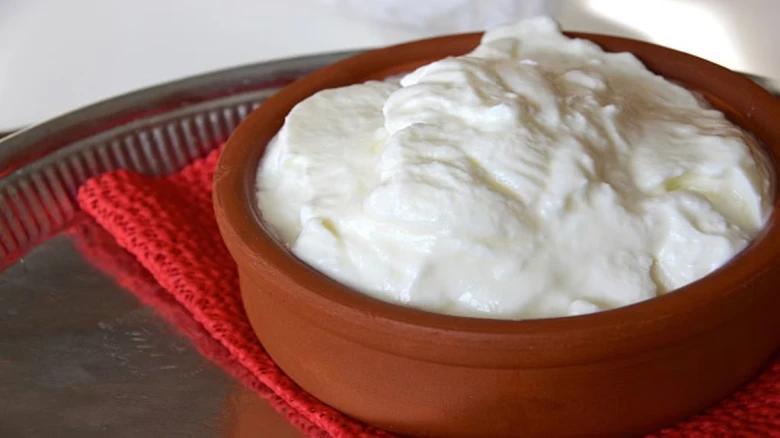Eating curd in winter can have both advantages and side effects, here are some of the benefits and side effects...
Digital Desk: In winter, the consumption of curd, or Dahi, becomes a subject of debate. While some believe it can increase the risk of cold and cough, others include it in their diets in the form of raita, yogurt, and dips. Ayurveda advises against curd in winter, especially at night, attributing it to potential mucus formation.
Nutritionists, on the other hand, argue that curd, rich in probiotics, calcium, phosphorous, potassium, and micronutrients, poses no harm if it suits one's digestion.
If you do not feel like having plain curd in winter, you can also add it to your curries, warm smoothies, or have it as spiced lassi, say nutrition experts.
Eating curd in winter can have both advantages and side effects, here are some of the benefits and side effects of curd.
Benefits of eating curd in winter:
1. Probiotics for Gut Health: Curd houses beneficial bacteria, promoting a healthy gut. This is crucial for overall well-being, as a healthy gut supports a robust immune system – particularly important during the winter months.
2. Nutrient-Rich Goodness: A valuable source of calcium, protein, and essential nutrients, curd contributes to bone health, muscle function, and overall bodily well-being.
3. Versatile Culinary Companion: Whether in its plain form, as flavored yogurt, or incorporated into dishes like raita, curd adds versatility and taste to the winter diet.
4. Immunity Boost: The probiotics in curd may enhance the immune system, providing defense against common winter ailments such as colds and flu.
Some side effects of eating curd in winter:
1. Digestive Comfort: Some individuals find consuming cold foods like curd less comfortable for digestion in winter. Opting for curd at room temperature or incorporating it into warm dishes can address this concern.
2. Warm Food Preferences: Winter often brings a preference for warm foods to maintain body temperature balance. Warm soups, stews, or teas might be more appealing alternatives for those hesitant about cold curd.
3. Personal Tolerance: Individual reactions vary. If discomfort or digestive/respiratory issues arise after consuming curd in winter, moderation or experimenting with different forms of preparation may be prudent.
However, the decision to include curd in your winter diet boils down to personal preference and tolerance. While it offers an array of nutritional benefits and can boost immunity, individuals should be mindful of potential digestive discomfort and consider alternative warm options if needed. The key lies in striking a balance that aligns with both Ayurvedic wisdom and modern nutritional insights.

Leave A Comment